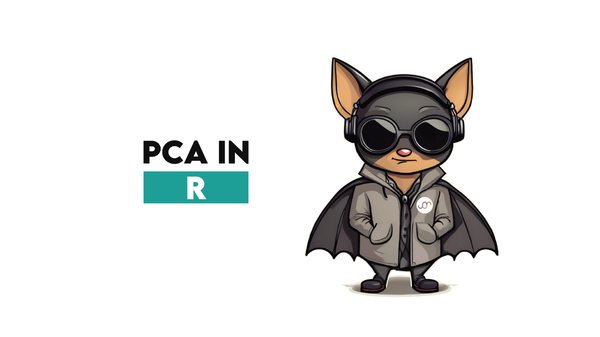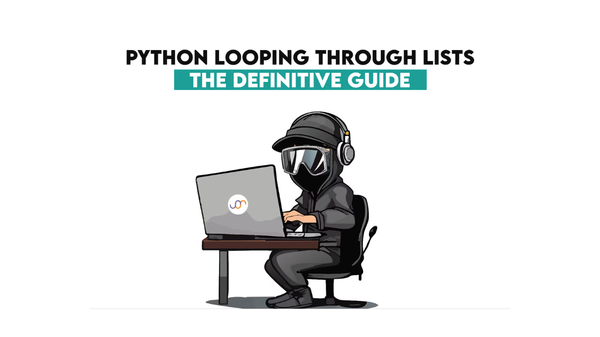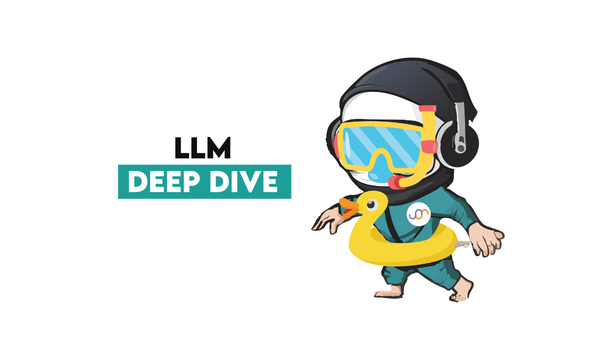How to Become a Data Scientist from Scratch
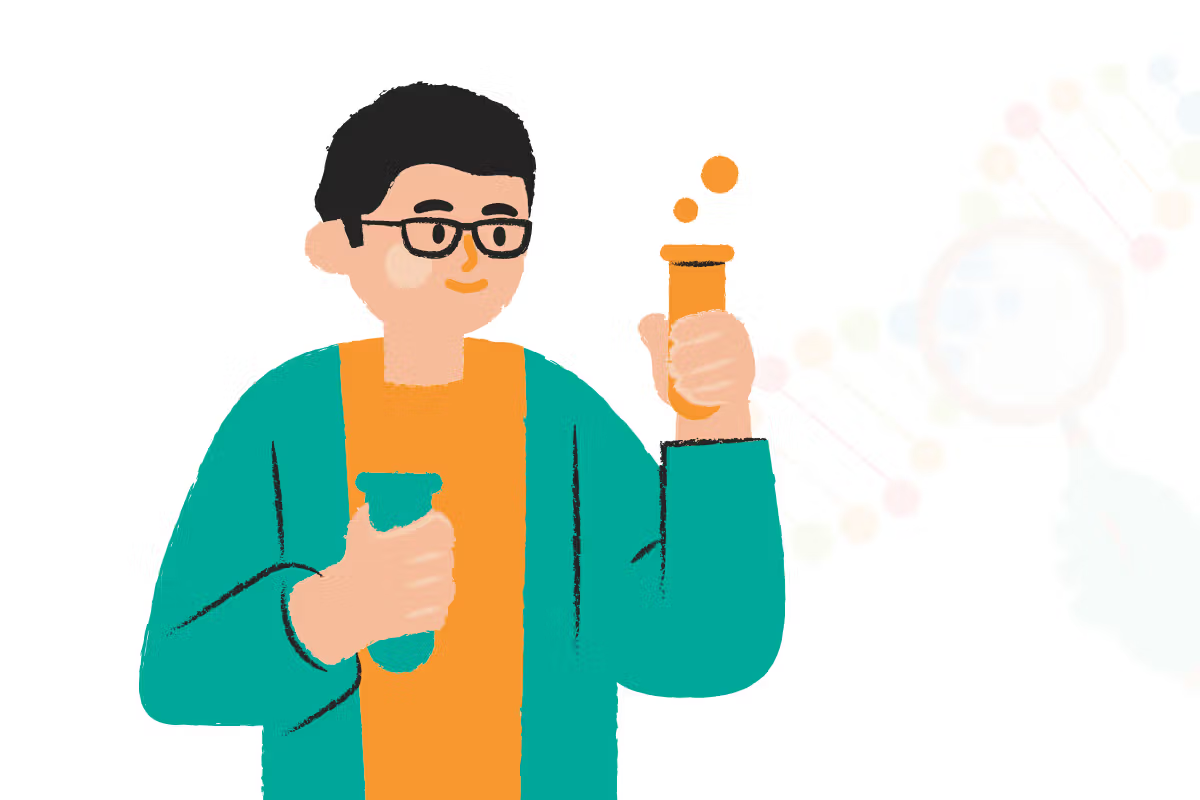
 Written by:
Written by:Nathan Rosidi
A comprehensive guide that will take you through every necessary step to become a successful data scientist from scratch.
Want to know how to become a data scientist from scratch? This comprehensive guide will take you through every necessary step to become a successful data scientist.
A Complete Career Guide on How to Become a Data Scientist
Data science has become the hottest career option for students. It’s become one of the fastest-growing career paths. In this high-tech world, every business and organization needs data scientists to leverage their data to the fullest extent. This provides ongoing opportunities for those who want to get hired into a data scientist role. This blog post will take you through all the necessary steps you need to know to become a successful data scientist.
What is a Data Scientist?
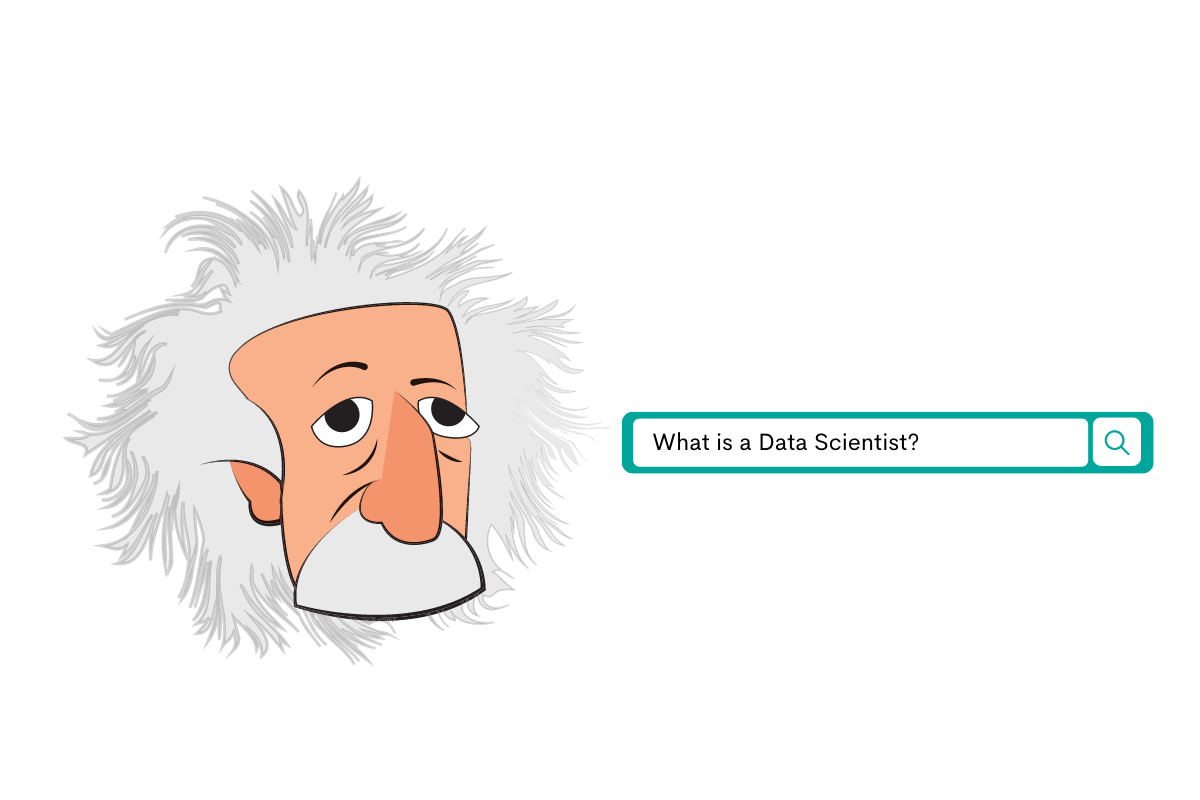
Data scientists are the data experts who are most valuable to companies. They have the technical skills to solve complex and vexing data-related problems. They are big data wranglers who use scientific methods to gather and analyze large sets of structured and unstructured data.
Data scientists are analytical experts who can utilize their technical skills as well as soft skills to find trends and manage data. To figure out solutions to several business challenges, data scientists have skills like:
- Industry Knowledge
- Making Sense of Messy and Unstructured Data
- Intellectual Curiosity
- Business Acumen
- Teamwork
What are the Role and Responsibilities of a Data Scientist?
The role of a data scientist combines computer science, math, and stats. Data scientists undertake data collection, analysis, process, and model data then after interpretation, they create actionable plans to leverage that data. They also use data visualization techniques to present information. A recruiter can find you as a data scientist to analyze their large amounts of raw information to find patterns that can help improve their business or organization. An employer always wants you to build data products to extract valuable business insights.
In the role of a data scientist, you have to work closely with business stakeholders. You have to understand their goals and determine how you can achieve those goals. So as a data scientist, you also need skills like good communication, critical thinking, and problem-solving skills.
Responsibilities of a Data Scientist
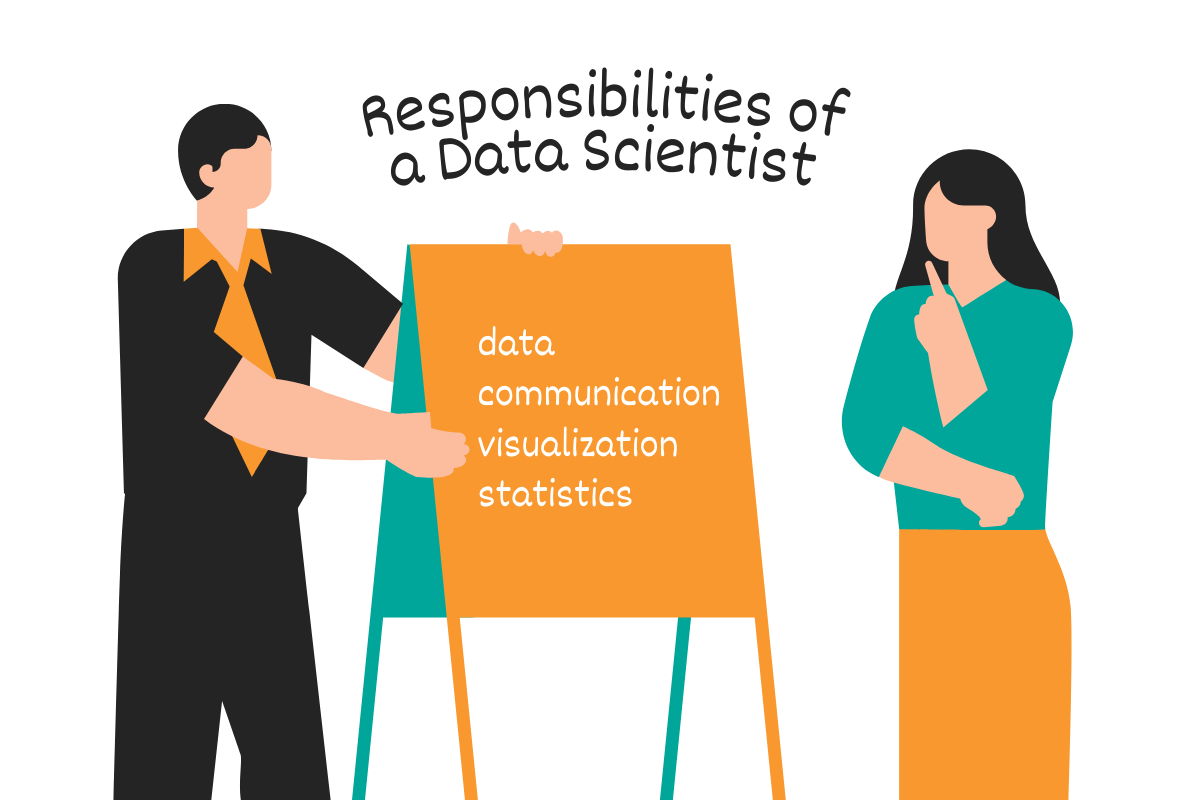
- Visualization
- Using data visualization techniques to present information
- Data
- Identifying the data-analytics problems and valuable data sources
- Automate collection processes
- Defining the correct data sets and variables
- Processing of structured and unstructured data
- Cleaning and validating the data
- Analyzing a large amount of information to identify patterns and trends
- Statistics
- Building predictive models and machine-learning algorithms
- Communication
- Communicating with stakeholders using visualization and other means
- Collaborating and Proposing solutions and strategies to several business challenges
How to Become a Data Scientist
You would be thinking that you need an undergrad in engineering or a background in statistics and mathematics. Undoubtedly it will be beneficial but do you know that it is not necessary at all? Basically, there are three ways to become a data scientist:
- Get a bachelor or master in data science or similar quantitative field
- Get into a Bootcamp program
- Learn it by yourself
Can You Become a Data Scientist Without a Degree?
It's a very common question of whether you can become a data scientist without actually having a degree. And the answer is - Definitely YES! You can learn it by yourself to become a data scientist even if you do not have a degree in a related field. Many successful data scientists don't have either a bachelor or master degree. There is a stronger variance in data scientists' educational backgrounds than almost any other tech career. It is also noticed that a large number of people from other industries like machine learning, software engineering, data analysis etc transition into data science.
The fact is that your course or whether you have a degree does not affect your chances of becoming a Data Scientist. What really matters is your skillset.
So, as many well-known data scientists don't have a technical degree and they are still successful data scientists, you can also become a successful data scientist even if you have a degree in another field.
Data Scientist Technical Qualifications
Here we are trying to outline what technical qualification you should possess to become a data scientist. As a data scientist, you should have a strong command of the following most in-demand data science technical skills:
- Python or R programming
- Writing queries in SQL
- Building and optimizing machine learning models
- Data Wrangling
- BI Tools such as Tableau, powerBI, and Qlik
- Understanding of relational databases such as PostgreSQL, MySQL, SQL Server, Teradata, BigQuery, Oracle, or Snowflake
- Ability to Host Dashboards
If you are confused between Python and R and want to know which language is better, check out this article: Python vs R for Data Science
Data Scientist Non-Technical Qualifications
Soft skills or non-technical skills hold equal importance to your technical skills. These soft skills always result in higher efficiency and productivity. These soft skills include:
- Critical thinking
- Effective communication
- Presentation skills
- Adaptability
- Multi-functional collaboration
- Team Player
Soft skills give you the opportunity to cultivate and sharpen your data science performance. Recruiters always look for these soft skills in data scientist candidates.
The combination of technical and soft skills can aid data scientists in generating business value for their company and gives them the opportunity to boost their data science career.
Steps to become a data scientist
Your data science journey won't be easy but your efforts, hard work, and dedicated time will pay you back if you follow a few following steps that will help you in your journey to becoming a data scientist.
Here are the easy steps to becoming a data scientist:
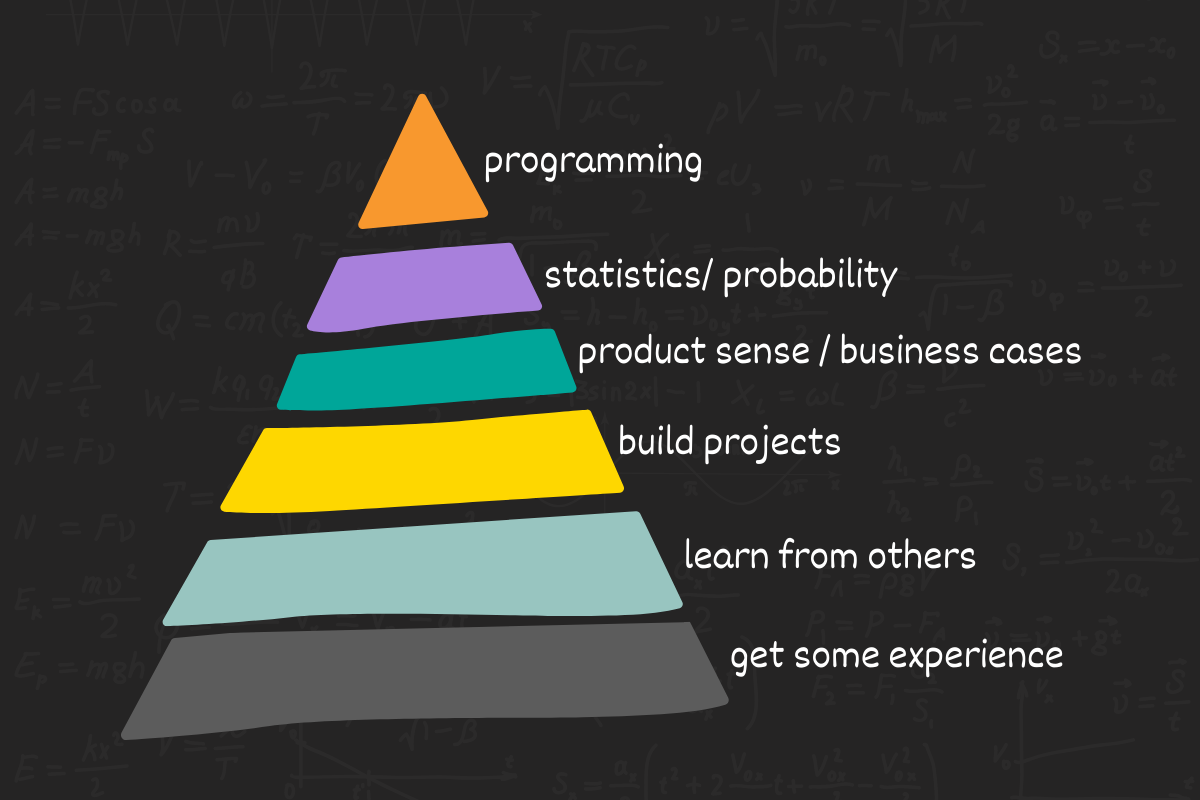
1. Programming
The most widely used programming languages are Python and SQL. For many candidates programming is the most time consuming and the hardest step to becoming a data scientist. It's not hard about learning the syntax of Python and SQL, but how you approach your solutions and how you implement them.
Within programming, there are two programming skills you have to learn to become a data scientist:
- Data Analysis
- Machine Learning
Data analysis
Data analysis is all about pulling and manipulating data, and then being able to generate insights and recommendations. Here you need to possess the knowledge of SQL as this language is the domain-specific language and you'll be using it to extract data from databases. You'll also need to know another scripting language, usually Python or R.
You can start building projects as you are learning the basics of coding. It will help you showcase your data science skills. To get better at this, we have another piece of advice as well - try practicing interview questions. There is no better way to succeed in a data science interview. Just practice a ton of interview questions and get better at data analysis. By practicing coding interview questions, you'll be solving real problems that are relevant to data science industries. As you'll have mastered the necessary technical skills, you'll be able to answer most questions easily.
There are so many platforms out there to practice data science interview questions. LeetCode is the most popular one but it is tailored for software engineers. So, do you think LeetCode is built for data science interview preparation? Find out here: LeetCode for Data Science.
There's also StrataScratch, what we recommend. Because this platform is specifically designed for data scientists and provides hundreds of real data science interview questions to practice.
It's also important to know that no matter how hard you are working to learn data analysis you'll never become an expert. It's not a piece of cake. But it doesn't mean that you should stop striving to continue growing. You have to keep improving your skills in the new areas. So to stay on top of data science skills, you need to practice as much as you can.
There are usually several concepts interviewers can try to pack into one question. These are the concepts they would test you for. It's important to know what these concepts are and how you can deal with them. Here's a video explaining these concepts:
For data analysis, we suggest doing as many relevant interview questions as possible and master both SQL and either Python or R.
Machine Learning
It is another programming skill you need to learn to become a data scientist. Machine learning is a major part of data science and data scientists need to demonstrate their knowledge of machine learning algorithms. Machine learning is all about implementing machine learning models. You need to understand the data science workflow to build and implement these models. And to understand this workflow, you have to learn Python or R. This is where we recommend doing projects.
There are so many platforms where you can find projects. Kaggle is one of the most popular platforms. Here's how you can leverage Kaggle:
- Find a project there
- Grab the dataset
- Install jupyter notebooks
- Start doing projects
Also keep talking to people to learn more and identify the areas where you can improve.
Another popular resource is confetti.ai. This platform can help you get better at implementing machine learning models by providing you with a bunch of machine learning type questions. They provide a ton of coding and theoretical questions to practice that can help you understand the models.
Learning how to implement machine learning models is probably where you should spend most of the learning time. This will help you get a better understanding of the data science workflow which includes pulling data, manipulating data, feature engineering, model optimization, model implementation, and recommendations. This data science workflow is something you need to be good at because you are going to do these tasks every day on the job.
2. Statistics / Probability
Statistics and probability are the second technical topic you have to learn to become a data scientist. We just discussed machine learning models. What are the machine learning models? They are just statistical models. And as you're going to build them as a data scientist, you have to learn how they work.
You can do this through projects. And when you will be doing projects and building out your models - ML and even regression models - you have to read about the underlying theory and math about these models. It will allow you to better understand the underlying assumptions of the model, which will help you better clean your data and design your features, which will help you develop more accurate models.
Resources to Learn Machine Learning and Regression Theory
The best resources to learn machine learning and regression theory are through google searches that might take you to Medium or Wikipedia or some other authoritative site. There you'll find a bunch of articles and get a little better understanding of the underlying theory.
How to Practice Traditional Statistics & Probability
The best resource to practice traditional statistics and probability is Brilliant.org. The questions they provide for practicing are similar to the questions you get in a data science interview.
You can explore statistics and probability interview questions to practice.
3. Product Sense / Business Cases
The third step to becoming a data scientist is learning Product Sense. It's a non-technical concept that you’ll need to learn to become a data scientist.
What is product sense?
It’s similar to product management (obviously not quite the same) but it is when you look at the problems and make decisions. While everyone is learning how to build models, it's equally important to make sure you learn product sense to deliver impact and actionable analytics that can move the product in the right direction.
Reasons why you should focus on developing product sense to become a successful data scientist:
- It helps in measuring the success of different parts of the product.
- It helps to move fast and systematically.
- It helps in identifying whether a product is performing well or not.
- It helps data scientists set the goals for analysis and prevent scope creep in the future.
- Models without product sense are of no use.
- It helps you figure out how to approach and analyze a problem to make recommendations to solve the problem.
How to get better at product sense?
Now that we know that product sense is indeed important for a career in data science, how do we get better at product sense? We recommend reading product management case studies to know how PMs think and make a decision. There are many case studies, videos, and platforms. And YouTube is one of the resources that have a ton of PM videos. You can check out channels like Exponent where you can learn a lot about PM.
Another option is reading questions and other people's responses on Glassdoor. This may not be the best option because of the quality of the responses you see there but you should try this free option.
4. Build Projects
After learning the required technical skills, building projects is the best way to showcase your data science skills. As we discussed above, building projects can help you learn machine learning algorithms, statistics and probability, it also helps you understand real data science work and improve your skills. It helps you create a portfolio to showcase your skills to your potential employers. After building some smaller projects, you should find one interest area that you will go deep in. And as your skills grow, start making the problem more complicated.
To become a full-stack data scientist, you should have real-world skills - in analytics/coding as well as in using modern technologies.
Find the one and only data analytics project idea that can boost your portfolio: Data analytics project ideas that will get you the job
Components of a Good Project that can Impress Anyone
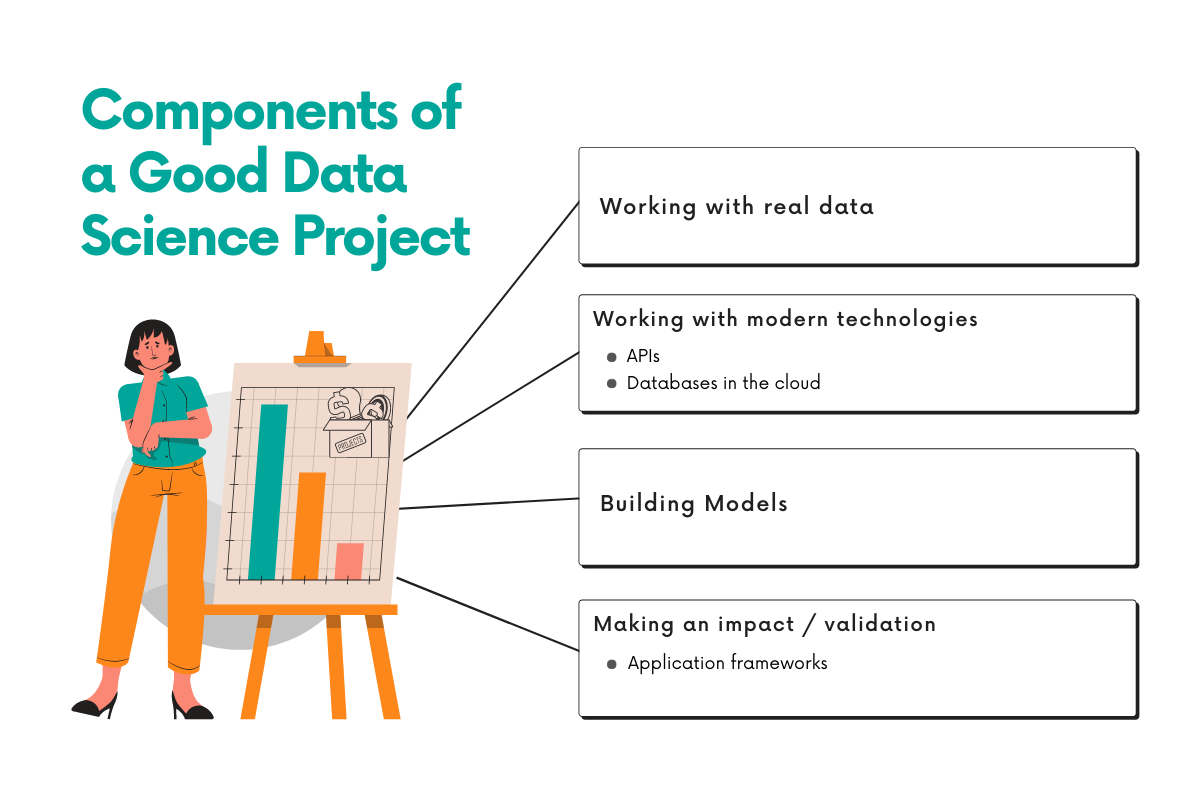
- Working with Real Data: It refers specifically to the data that gets updated in real-time.
- Working with modern technologies: Using APIs & Databases in the cloud
- Building models: Implementing models - whether regression or some type of machine learning model.
- Making an impact / validation: Share your code with others and get some validation.
5. Learn from Others
Learning from others is a good idea to improve your skills and learn the different ways people use to solve data-related problems. So start engaging with other data scientists as well. It can be done through in-person or online communities.
Here are some good online communities you can consider:
- Subreddits like /r/datascience
- Quora
- Kaggle
Engaging in online communities can help you to find opportunities and enhance your knowledge by learning from others. You can also engage with more experienced data scientists in-person through meetups.
6. Obtain an Entry-Level Job and Get Some Experience
Learning the basics of identifying trends is crucial for a successful data scientist career. And this can be done through real experience. Companies are always athirst to fill entry-level data science positions. Many data scientists begin their careers as data analysts. You can search for jobs such as junior data scientist or junior data analyst. But landing your first job as a data scientist is no small feat. Here the fourth step, building projects, works. Building projects on your own shows your passion and abilities to work with data and make you able to land your first job.
Types of Data Science Job Roles You Can Get
When searching for a data science job, we suggest reading the job descriptions carefully. Data science job roles are drastically different from each other. The below detail regarding the different data science job roles will help you develop a specific data skill set to match the roles you want to make your career in. Here are some of the leading data science careers you can pursue:

- Data Analyst:
- This role is responsible for a variety of tasks that include visualisation, manipulating, and processing large amounts of data.
- Data Engineers:
- Data engineers perform their tasks such as building and testing scalable big data ecosystems before a Data Science model is executed.
- Database Administrator:
- Database administrators are responsible for database backups and recoveries.
- Data Scientist:
- Finding, cleaning, and organizing the data for companies are the major tasks of a data scientist. Using the skills of data analysis and data processing, they have to understand the challenges of business and offer the best recommendations.
- Machine Learning Engineer:
- With statistics and programming skills, they create data funnels and deliver software solutions.
- Machine Learning Scientist:
- Machine learning scientists research new data approaches and algorithms for adaptive systems.
- Data Architect:
- Data architects create the design plan for data management so that the databases can be protected with the best security measures.
- Statistician:
- Statisticians work to organize data in order to identify trends and relationships and offer valuable insights.
- Data and Analytics Manager:
- This role consists of data science operations and assigning the duties to the team according to skills and expertise.
- Business Analyst:
- A business analyst finds a way to link Big Data to actionable business insights so that the goal of business growth can be achieved.
How Long Does It Take to Become a Data Scientist?
You can learn the required skills for a career in data science in as little as 3 months. Most of the online Bootcamps are typically structured to be completed within a year. So you don't need to spend your four years at a university to become a data scientist. There are multiple paths to learn data science skills and get your first job as a data scientist.
The general consensus, however, is that data science is an ever-evolving field, so you have to devote years of your career to become a good Data Scientist. It’s all depends on how much time you devote every day and how much dedicated you are to your learning journey.
Data Scientist Salary
How much can you make as a data scientist?
You might be curious to know this!
According to Glassdoor, the current average annual salary for a data scientist position is $126K. The factor behind the high data science salaries is the high demand for data professionals. However, this figure can differ depending on the location, data scientist’s educational level, experience, and the size of the enterprise.
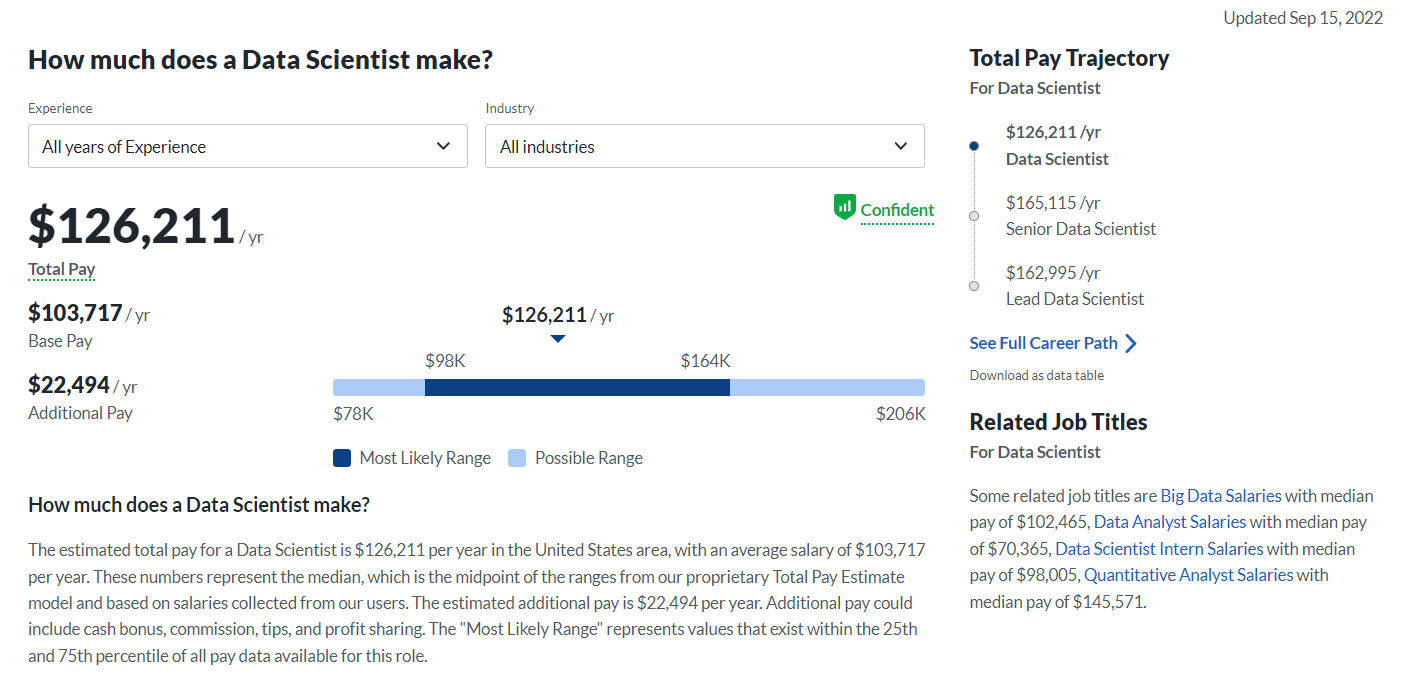
Experience is one of the most important factors that determine your salary as a data scientist. According to levels.fyi, here is how much data science professionals make at big companies for every year of experience:
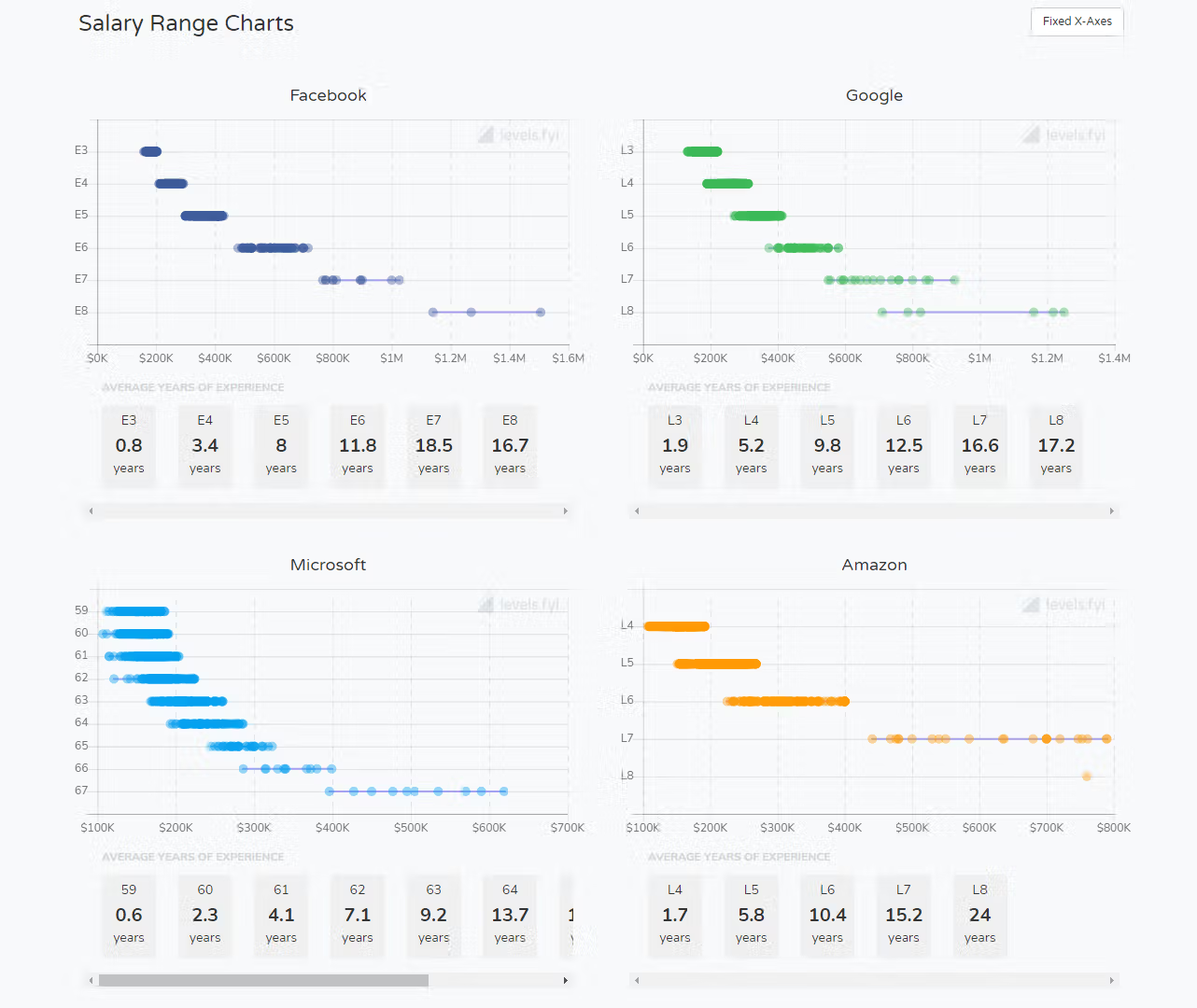
Check out our complete article on how much data scientists make and find out about salaries in Data Science and how they are influenced by different factors.
Conclusion
To summarize, we can say there are generally 3-4 different topics that a data scientist should know. And it's hard and takes a while to be good at it. To become a data scientist, you need to have a good understanding of programming and stats, machine learning and regressions, how to implement it, and the theory behind it. And you have three ways to learn these skills - a bachelor or master in data science, get into a Bootcamp program, or learn it by yourself.
Share
